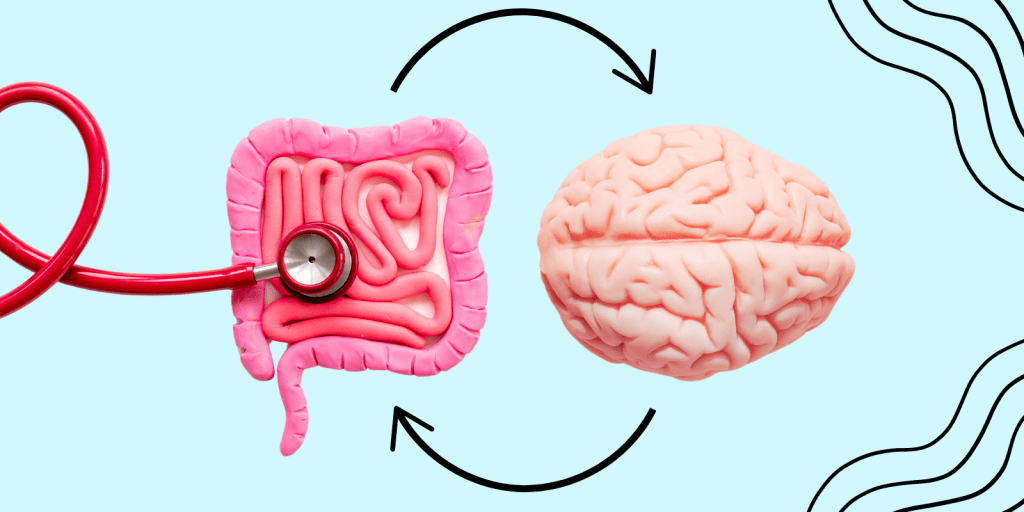Most people associate childhood with innocence, play, and growth. But for millions of children across the world, those early years are filled with chronic stress—poverty, illness, abuse, or neglect. While the emotional toll is easy to understand, the deeper damage is often invisible. Science now reveals that stress in childhood doesn’t just hurt the heart—it also disrupts the gut and reshapes the brain in lasting, dangerous ways.
Childhood trauma doesn’t just fade with time. It embeds itself in the very systems that control digestion, immunity, emotion, and even long-term mental clarity. The gut-brain connection is no longer fringe science—it’s a powerful field shaping how we understand mental and physical health. And what’s more stunning? Food may be one of the most powerful tools to undo that damage.
How Early Stress Rewires the Gut-Brain Axis

Let’s break it down. When a child is exposed to high stress—like growing up with food insecurity, witnessing violence, or battling illness—the body activates the “fight or flight” system. This causes a cascade of effects: increased cortisol, inflammation, and a weakened immune response.
What happens next is often overlooked: the gut becomes more vulnerable.
The intestinal lining becomes permeable, making it easier for harmful bacteria to sneak in. Once they’re settled, these “bad microbes” alter gut chemistry, hormone production, and communication with the brain. Over time, this microbial imbalance fuels problems like anxiety, depression, mood swings, poor focus, and even food addiction.
This is the gut-brain connection in action—and it’s especially damaging during the early developmental years.
The Long-Term Health Risks of Gut Imbalance from Childhood
Childhood isn’t just about playtime and report cards. It’s the foundation for an entire lifetime of physical and mental well-being. And when the gut-brain axis is disrupted, the risks multiply:
- Mood disorders: Persistent microbial imbalances can increase the risk of anxiety, depression, and emotional instability.
- Obesity and cravings: Harmful bacteria may hijack signals that control hunger and satisfaction, leading to sugar cravings and unhealthy eating patterns.
- Metabolic issues: Studies connect early stress and poor gut health with type 2 diabetes, insulin resistance, and metabolic syndrome later in life.
- Cognitive decline: The chronic inflammation triggered by gut dysfunction is linked to early brain aging, memory loss, and even Alzheimer’s disease.
In other words, what happens in childhood doesn’t stay in childhood—it echoes through every system of the body.
Video : The Science Behind The Gut-Brain Connection
The Healing Power of Nutrition: It’s More Than Just a Salad
Now for the hopeful part. Nutrition is one of the most powerful weapons we have to restore gut health and support brain function—even in those impacted by early trauma.
So what does the research say?
- Omega-3 fatty acids, found in foods like salmon, walnuts, and flaxseed, reduce inflammation and support mood balance.
- Probiotic-rich foods (like yogurt, kimchi, kefir, and sauerkraut) help restore beneficial gut bacteria and create a healthier microbiome.
- Polyphenols, the natural compounds found in colorful fruits, vegetables, teas, and herbs, protect cells from damage and support digestion and mood.
- Fiber acts as fuel for good gut bacteria—especially when it comes from plant-based sources like beans, whole grains, and greens.
Even more impressively, researchers have shown that these dietary improvements can help not just children, but mothers too.
For instance, probiotics taken during and after pregnancy have been shown to:
- Improve breastfeeding success
- Reduce maternal stress and postnatal depression
- Support infant immune and digestive health
This reveals a powerful intergenerational effect: what mothers eat and how babies are nourished shapes the mental and physical health of the next generation.
The Mediterranean Diet: A Gut-Brain Hero
Among all eating patterns studied, one stands out as particularly effective—the Mediterranean diet.

Why? It’s rich in omega-3s, low in processed sugars, full of fiber and polyphenols, and built around fresh, whole foods. Multiple studies show that children following Mediterranean-style eating patterns have:
- Better attention and memory
- Lower levels of anxiety
- Reduced risk of obesity and diabetes
- Healthier gut microbiomes
Now here’s the issue: not every child has access to this kind of nutrition.
The Threat of Cuts to Food Assistance Programs
In the United States, millions of children rely on food assistance programs like SNAP, WIC, and school meal initiatives. These programs are lifelines—especially for families affected by poverty, illness, or other stressors.
But with proposed budget cuts threatening these safety nets, we may be heading into a dangerous spiral.
If nutritious foods become harder to access for vulnerable children:
- Mental health issues will rise
- Chronic illnesses like diabetes and obesity will increase
- School performance may suffer
- Long-term consequences may include increased crime, unemployment, and higher healthcare costs
In short, undernourished children become underdeveloped adults—and society pays the price.
What You Can Do: It Starts with Awareness
The gut-brain axis is real. And the effects of childhood stress run deeper than we ever imagined. But if we act now—with smarter policies, better access to nutrition, and more support for families—we can break the cycle.
Video : How Your Gut Health Affects Mental Health
Here’s how to help:
- Advocate for food assistance programs in your community
- Support organizations bringing fresh food to underserved neighborhoods
- Learn more about gut-friendly foods and integrate them into your family’s meals
- If you’re a parent or expecting, talk to your doctor about probiotics and prenatal nutrition
Conclusion: Nourishing the Future Starts Now
Childhood stress isn’t just an emotional wound—it’s a biological one. It leaves fingerprints on the brain, the immune system, and the gut. But thanks to cutting-edge research, we also know how to heal those wounds—with the right food, the right support, and the right public action.
Because when we feed a child’s body, we’re also feeding their mind, their future, and ultimately—our shared humanity. Let’s not miss that opportunity.


